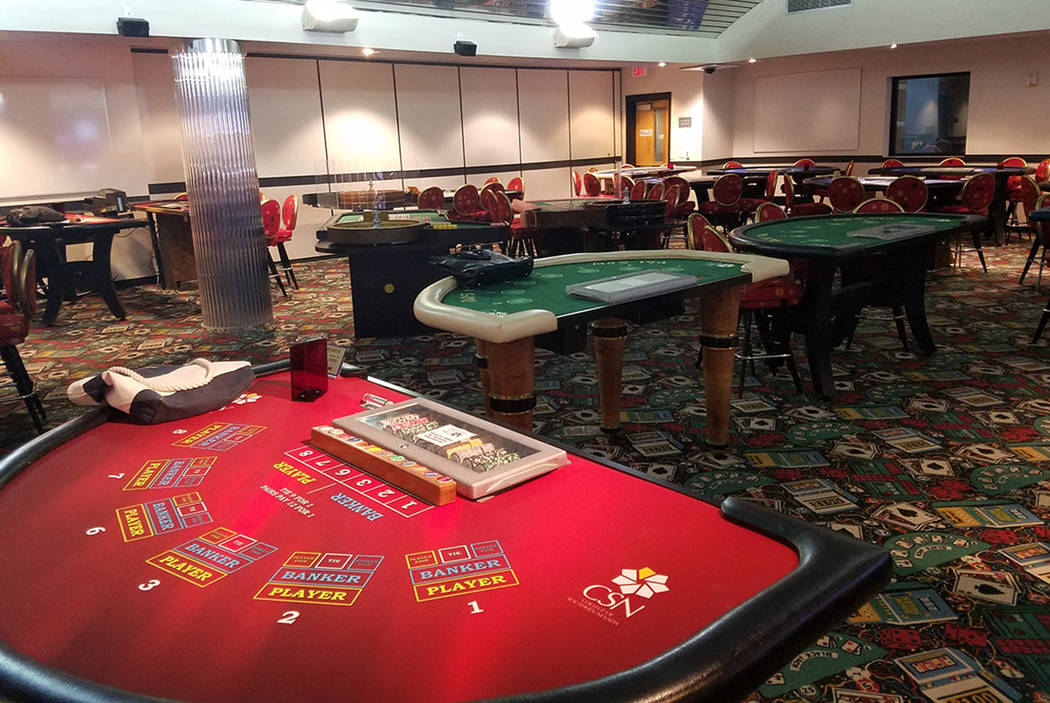For a degree in casino management, try College of Southern Nevada

Quick, what’s the only postsecondary institution in Nevada to offer a degree in casino management?
If you guessed UNLV, you would be wrong.
Welcome to the North Las Vegas campus of the College of Southern Nevada, where students under 21 who can’t legally play in Nevada casinos can learn how to deal card and dice games.
Every game found in Nevada’s more than 330 nonrestricted locations is on the floor of the 2,700-square-foot lab, and on a recent September morning, about a dozen students were gathered around a craps table playing the game and taking turns managing the table.
“The biggest difference between what we do and what UNLV does is that we offer application and theory,” said Mark DiStefano, the department chair and a professor for CSN’s Department of Hospitality Management.
CSN offers a two-year associate of applied science degree in casino management with five programs focusing on casino management; food and beverage management; culinary arts; tourism, convention and event planning; and hotel management.
The casino management curriculum offers courses in race and sports books, slots, table games, casino marketing and gaming laws and regulation. The big difference compared with UNLV is offering hands-on experience with the many variations of table games. UNLV’s degree in hospitality management has plenty of emphasis on casinos and research but little hands-on game play instruction.
“We teach students how to deal the games, how to get their foot in the door at a casino,” DiStefano said. “If you’ve never dealt a game before, it’s tough to go up the ladder.”
DiStefano knows that from firsthand experience.
DiStefano was a resident of Watertown, New York, when his parents offered to take him for his 18th birthday to the Turning Stone tribal casino near Syracuse, which has a minimum age requirement of 18.
He eventually got a job dealing craps at the casino when he was 23, and in 2006 decided he wanted to move to Las Vegas.
DiStefano got a job at the Rio and decided he wanted to learn how to deal pai gow and took a class at CSN. He was invited to become an adjunct instructor at the school and began teaching in 2006.
By 2009, he was working full time at CSN and the Encore, where he had taken a position as a floor supervisor.
Yearning to grow into something new, DiStefano took a position overseeing surveillance training at The Cosmopolitan of Las Vegas and was named department chair at CSN in 2015.
While many courses at CSN are online, the dealer courses require students to be on campus. But many of the online management courses are in modules in which a student can’t advance until completing a course and passing a test.
DiStefano said a marketing course test might ask a student to compute the theoretical win if someone played for 8½ hours, placed an average bet of $350 in a game in which the house edge is 1.24 percent.
“What’s the theoretical win?” he asked. “If they can’t figure that out, they’d get the answer wrong and we’d have to determine where the student needs additional instruction.
CSN is accredited by two organizations, and an advisory committee meets twice a year with administrators to recommend courses and topics of instruction to keep the curriculum fresh and relevant.
Contact Richard N. Velotta at rvelotta@reviewjournal.com or 702-477-3893. Follow @RickVelotta on Twitter.